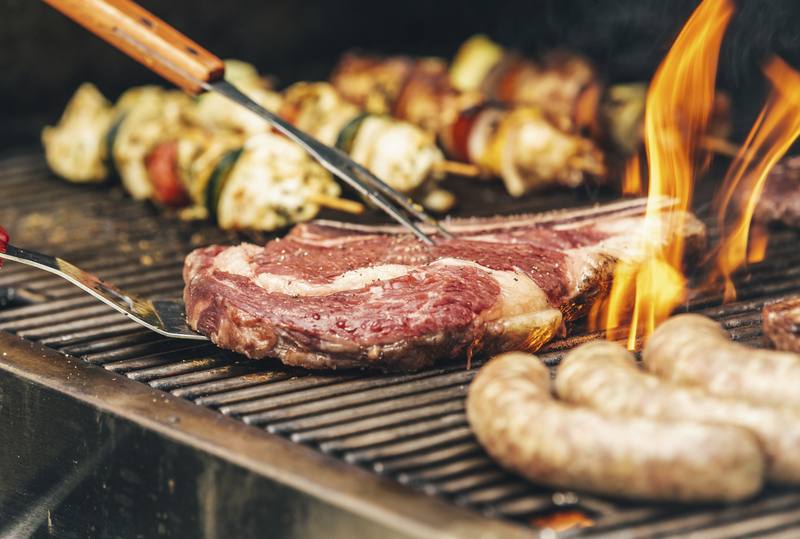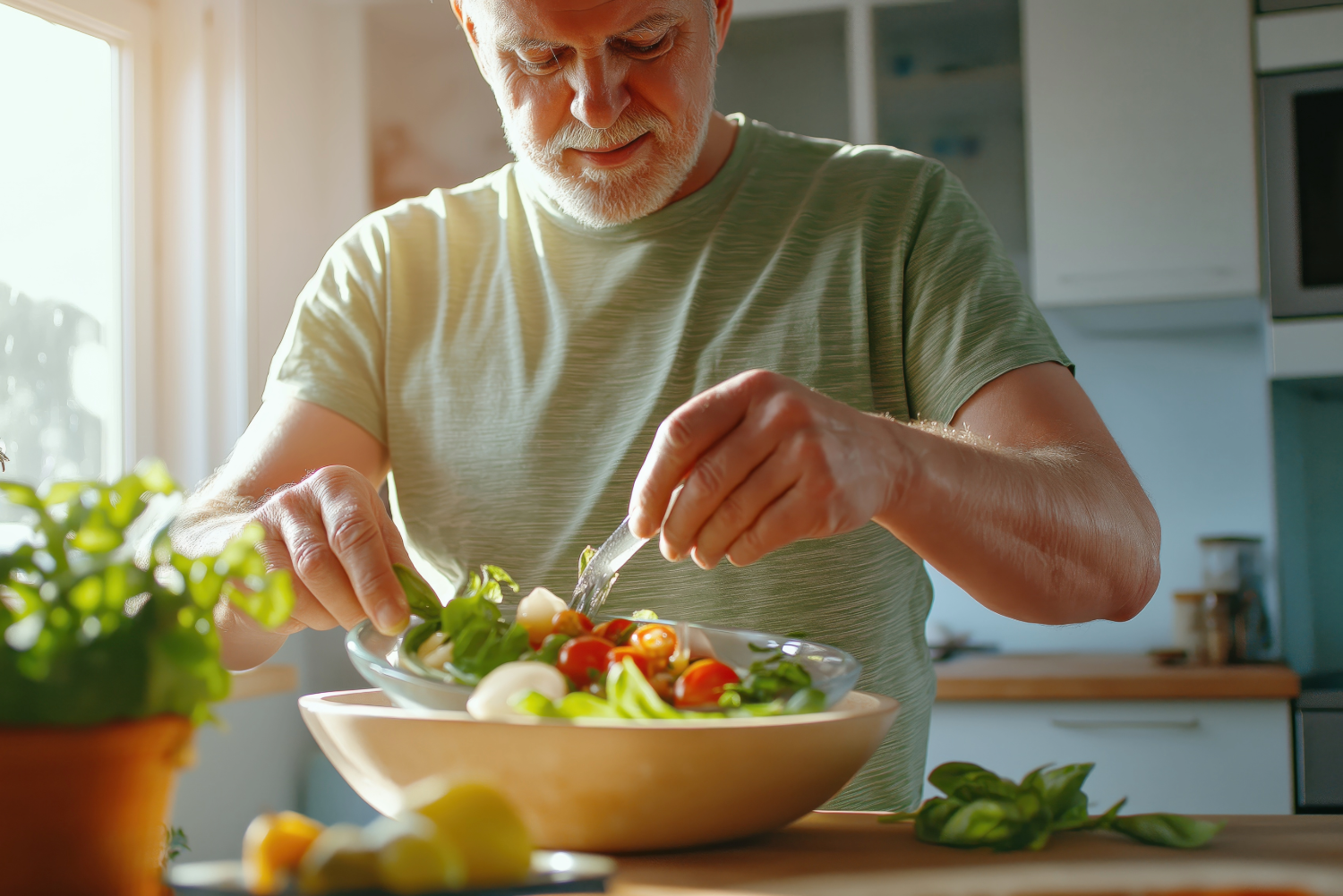News
What’s the Rub on Grilled Meats?

Grilling meat, fish and other animal proteins can create carcinogens that lead to cancer.
Outdoor barbecues are a staple of summer traditions in America. After all, what would the 4th of July, summer cookouts and tailgate food be without burgers and hot dogs on the grill? Unfortunately for those who love a char-broiled steak or barbecue chicken, studies have shown that grilled meats can increase the risks of developing cancer.
“We know that grilling, broiling and barbecuing meat, fish or other animal proteins can form potential carcinogens,” said Melaine Hendershott MS, RDN, CSO, a dietitian and board-certified specialist in oncology nutrition at Shaw Cancer Center. “The good news is, there are a few steps you can take to reduce the carcinogens in barbecued meats so you can still enjoy the tastes of the grill without the fear of getting cancer.”
Skilled grill masters and amateurs alike should be aware of the carcinogens that are formed as part of the grilling process, according to the National Cancer Institute and other medical sources. Heterocyclic amines (HAs) can form in meat when proteins react to the intense heat of high-temperature cooking methods like grilling, pan-frying or broiling. Polycyclic aromatic hydrocarbons (PAHs) are chemicals found only on grilled or smoked meat. They form when meat juices drip onto the heating surface and cause flames and smoke. The smoke contains PAHs that then adhere to the surface of the meat. Both HAs and PAHs can form on beef, pork, fish or poultry, and they have been shown to cause changes in DNA that may increase the risk of cancer.
Vegetables and fruits, on the other hand, do not form carcinogens during the grilling process and, in fact, they contain cancer-protective phytonutrients. So, if you’re looking for the flavor of the grill without the carcinogens, try cooking up some potatoes, bell peppers, zucchini, onions, mushrooms and any other vegetables or fruits you enjoy.
Can’t spare a summer without grilled spare ribs? Try the following tips and tricks to reduce (not eliminate) the carcinogens in barbecued meats.
- Marinate meats for 20 minutes before grilling to reduce HAs by up to 90 percent.
- Limit your meat portions by grilling with vegetables and fruits. Skewers are a great way to mix and match foods so that meat isn’t the focus of the meal.
- Shorten your grilling time—cut meat into thinner pieces to expedite cooking. Reduce your grill time by partially cooking meat in the microwave, oven or on the stove top first. Grilling in foil can also help protect the food from smoke and speed up the cooking time.
- Manage the flames—make sure flames die down before putting meat on the grill. Trim the fat before grilling to decrease the amount of PAHs that form when juices drip. Raise your grill rack to keep the flames away from your meat.
- Flip often—according to the National Cancer Institute, fewer HCAs are formed if you turn meat over frequently while cooking it on high heat.
- Avoid charred pieces of meat, which are more likely to contain a higher concentration of potentially carcinogenic compounds.
“Whether or not you grill the meat you eat, the research is clear that diets high in red meat increase the risk of colorectal cancer, and that even small amounts of processed meats, eaten regularly, increase risk for both colorectal and stomach cancers,” said Hendershott.
According to the U.S. Department of Agriculture, meat products should only represent one-fourth of your meal. So, for a healthy and balanced meal, fill the rest of your plate with grains and the delicious and nutritious fruits and vegetables that are also traditions of summer in the USA—tomatoes, berries, summer squash, corn, peaches, watermelon and cherries.
More News
-
New!
More

The Midnight Bathroom Run: Why It Happens and How to Stop It
If you’re waking up at night to pee, you’re not alone, and you’re not doomed to a lifetime of restless sleep. Nocturia, or nighttime urination, is one of the most common and under-discussed sleep disruptors, affecting both men and women, especially as we age. But according to Dr. Joseph Dall’Era, a urologist at Vail Health, it’s not something you have to simply “live with.” “Usually, we imply nocturia if the urge to urinate is what actually wakes people up,” Dall’Era explains. “For most people, getting up once a night isn’t a big deal. But if it starts to interfere with sleep quality or you notice a change in how often it’s happening, that’s worth a closer look.”
-
New!
More

Healing from the Inside Out: How Nutrition Supports Recovery
Whether you are recovering from a minor scrape, a sports injury or major surgery, what you eat can significantly impact how well, and how quickly, you heal. While your body is working hard to repair tissue, fight infection and restore strength, it needs the right fuel to do its job. Below are some simple ways to incorporate key nutrients into your diet to help your body repair itself.
-
New!
More

Supplements, Simplified
Nutrition noise is loud. From gym bros preaching powders to influencers pushing miracle capsules, it’s hard to know what your body really needs and what’s just hype. The truth? Supplements aren’t a one-size-fits-all, and they’re not meant to replace real food.





